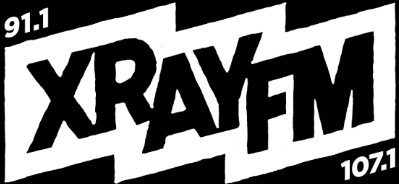Events
Turtlenecked (album release) / Cool American
- 8:00pm Thursday, June 15, 2017
Turtlenecked
With Vulture, Turtlenecked's Harrison Smith has created a beautiful art punk album that envelops listeners in a world of manic romanticism. The first track, “Boys Club,” the apogee of Vulture, begins with delicate harp and harmonizing, building to staccato yelps that are ultimately interceded by the strained, but still melodic screams of Smith, decreeing his effeminacy and disgust with other bands’ toxic masculinity. A pseudo-self awareness that, coming from a 20 year old, should be insufferable. But, regardless of if it’s Smith’s prolific nature, his undeniable musical ability or the standalone catchiness of the songs themselves, there’s something about Turtlenecked that makes any lyric or musical composition nearing self-indulgence or bourgeoisie instead steer into charming and charismatic territory.
Even the hardest elements of the album (histrionic vocals, harsh guitars, images of death and despondence, cacophonous drums) are cut with sweetness and pop melodies, giving the impression that Smith is using hysteria to feign a much deeper melancholy and a multi-faceted emotional competency he may not even be aware of owning. “I like music that’s accessible and fun….” Smith says, in the same breath condemning “happy albums.” This dichotomy is ever present on Vulture, both sonically and thematically. Smith moves from Big Black-esque severity, singing of wanting to “black out and sleep in my vomit” while using another song, one twee and simple, to wonder “am I the only one who wants a movie romance?” The movement between Smith’s perpetual disgust and tender optimism is seamless, as is the change in sound track by track. Smith’s influences are genre spanning, but the album sounds holistic and jointed—even on more experimental tracks like the 6 minute long dance song sung from the perspective of a serial killer.
As Smith grows, so does Turtlenecked. Despite being recorded entirely in Smith’s living room, Vulture sounds big, theatrical and developed. Keeping the post-punk sensibility and texture heard on past releases, Smith has removed any blemish from his sound without losing his edge or delight in the abject. On “Boys Club” Smith sings of his “delusions of grandeur,” but the only thing diluted about Vulture and Turtlenecked is that statement itself. The album is an ambitious, compassionate work of baroque and roll that further asserts Turtlenecked as an ever growing entity, one very much deserving of attention.
Cool American
The cover of Cool American’s Better Luck Next Year is a grainy post-party photo: empty mixers and liquor bottles strewn amongst fallen tinsel. This visual and the album’s title evoke the universal feeling of cleaning up the remnants of a disappointing evening.
Maybe next weekend will be different.
Nathan Tucker, the singer/songwriter behind Cool American, specializes in communicating this end-of-the-night ennui. He has the insight of a pop troubadour; his songs reveal astute observations about himself and his peers (“And every couple months/she’s seeing someone new/seems to keep her/from something deeper”) with a transparency that makes his lyrics—which at first may seem world-weary—hopeful and comforting. Tucker’s throaty voice narrates familiar feelings, making it extremely difficult to avoid empathy or self-reflection as he sings about topics ranging from getting the news about a hospital-bound friend to seeing a band play an all ages spot that will be closed in a year.
In Cool American’s forthcoming release, Tucker seems to be at the end of his rope emotionally (“Smoke a lonely cigarette/same stupid fucking music/is playing in the background”)—but that may be because all of his energy is going towards the music. Moving away from a lone guitar and towards an electric configuration gives Cool American the chance to find strength in their emotive vulnerability. By the third song on the record I had underlined my note “Sun Kil Moon with an Adderall prescription” four times (which is a big, big compliment).
The marriage of indie and pop in which Cool American is nestled is the result of Tucker’s affinity for past stars like Elliott Smith and the current Portland music scene. “I think of the music my friends and peers (both in Portland and elsewhere) are making as just as influential to me as whatever ’90s or ’80s band people are likely to think our album sounds like,” says Tucker.
Cool American taps into age-old indie rock anguish with extremely catchy garage-rock melodies and a focus that makes their angst seems mature and polished—a refreshing take on a genre that occasionally soaks too long in its own sadness. The album rarely voices complaints, but instead thoughtfully identifies the melancholy in the mundane, exemplified by “Wanna Be a Dick”—a plaint composed of muted voicemails, pretty finger-picking and gentle harmonizing.
“For recording we basically wanted the record to sound like just the band playing in the room,” says Tucker. Tucker and his band have accomplished this mission perfectly, and the simple recording makes the album personal and easy to connect to. Cool American's new album You Can Win A Few highlights a marked evolution over Better Luck Next Year— but the group haven’t lost their ability to make songs about everyday happenings romantic and compelling.

